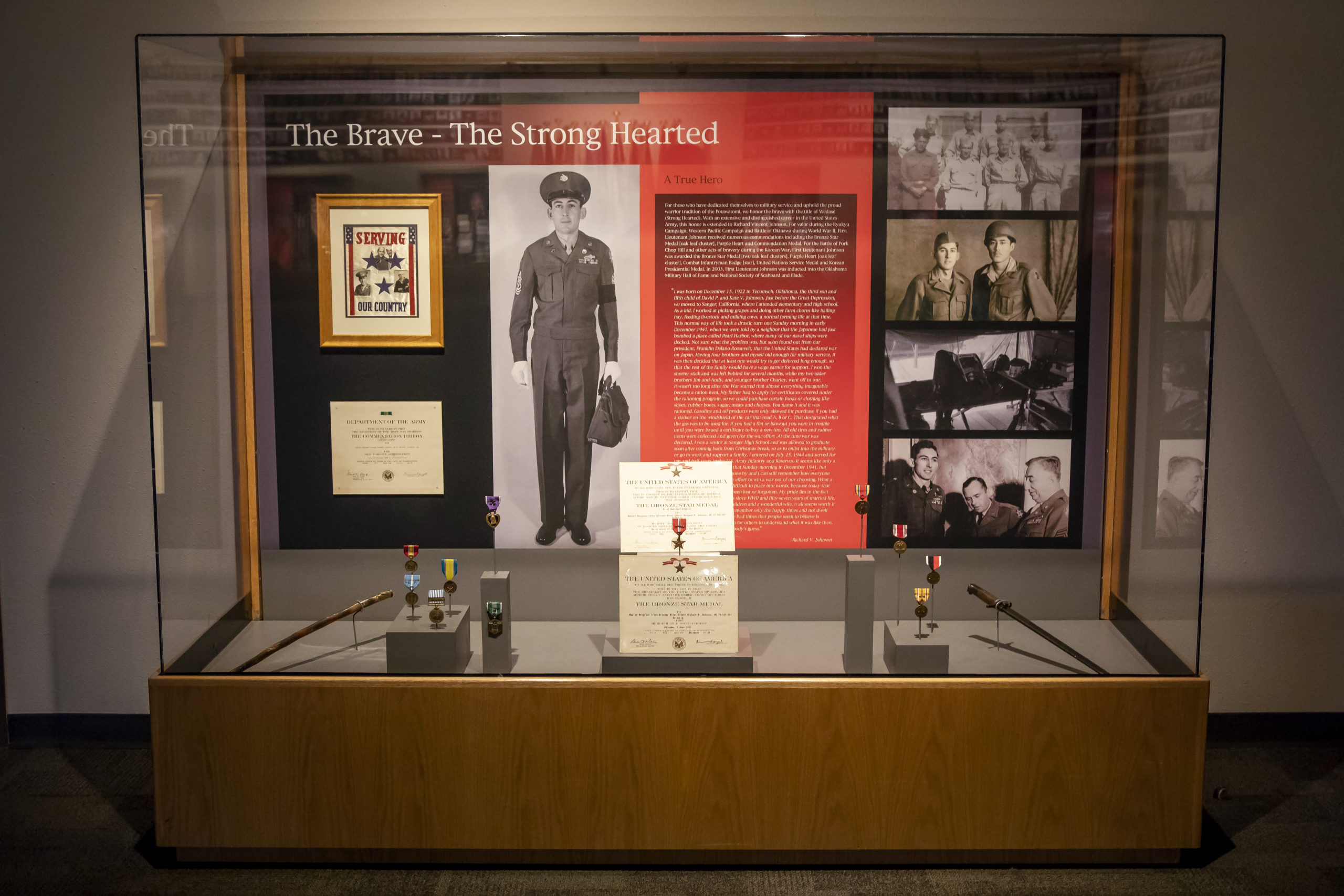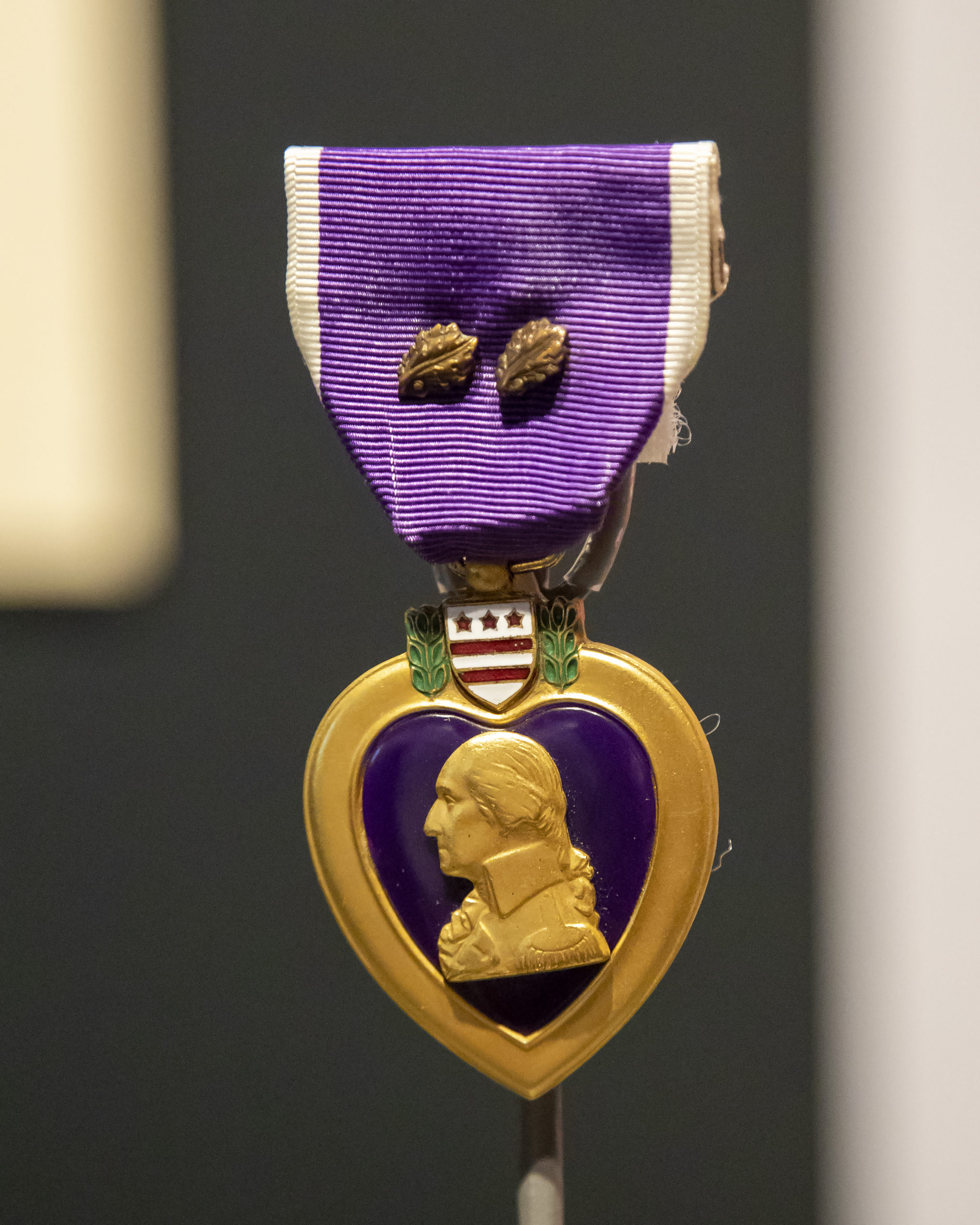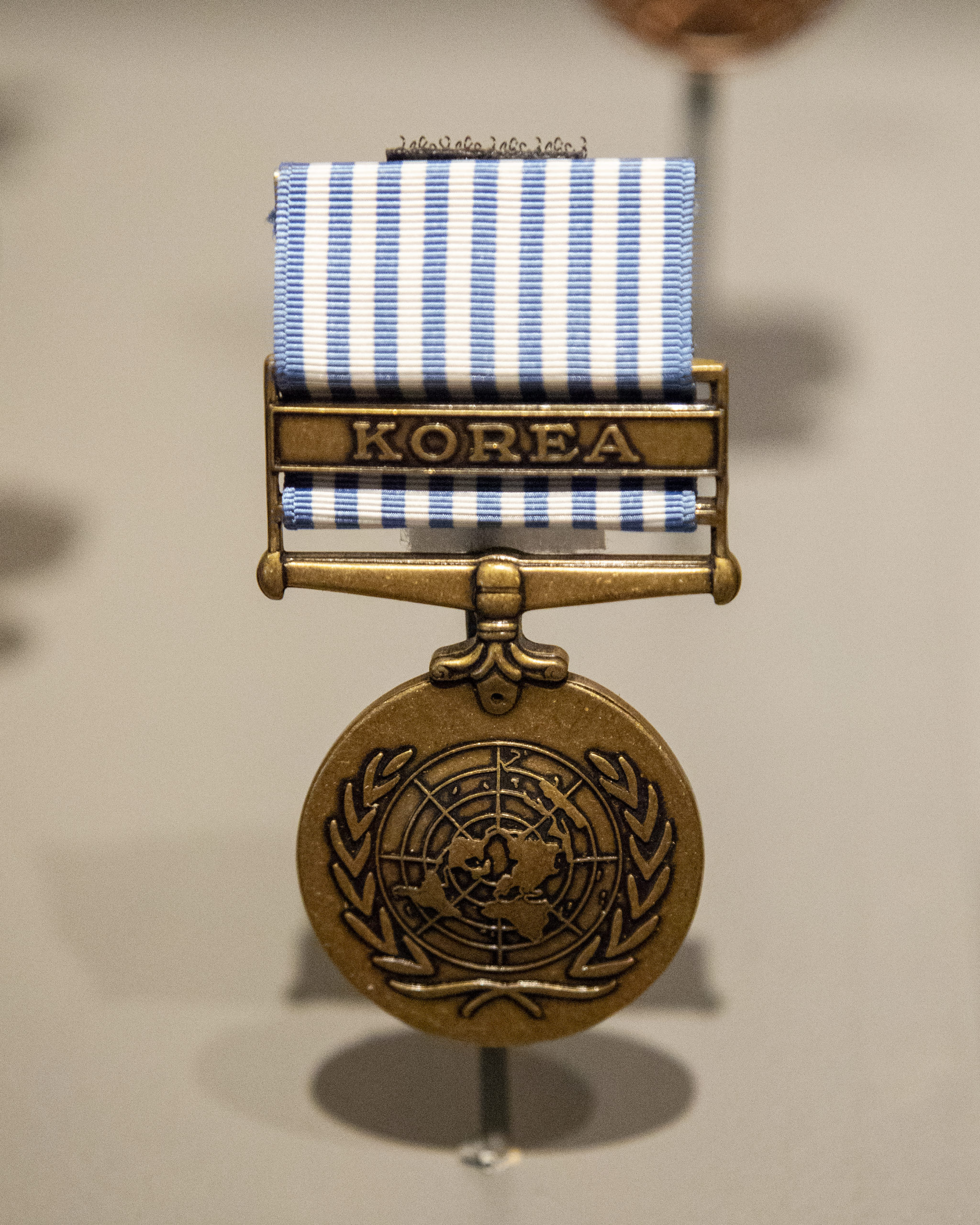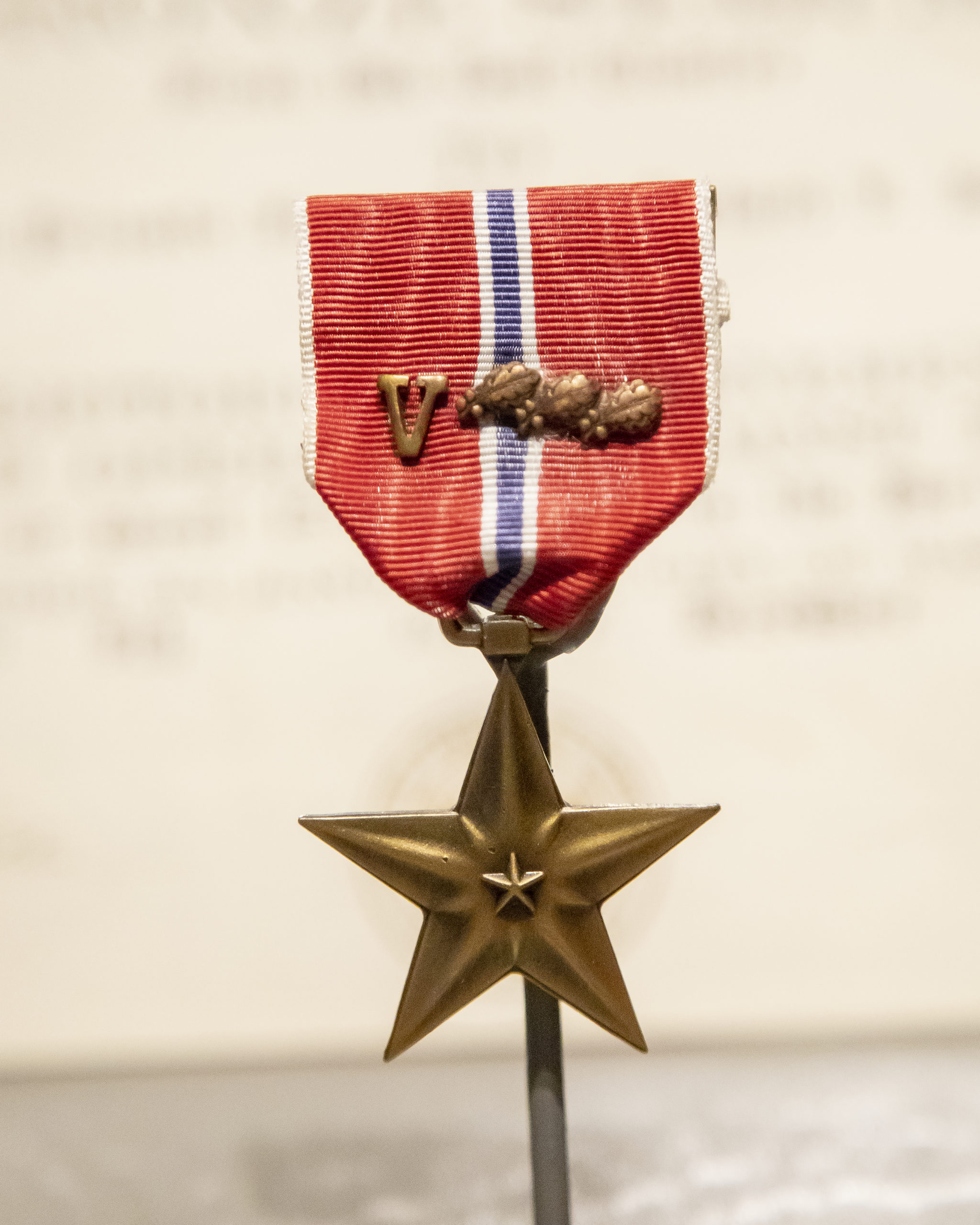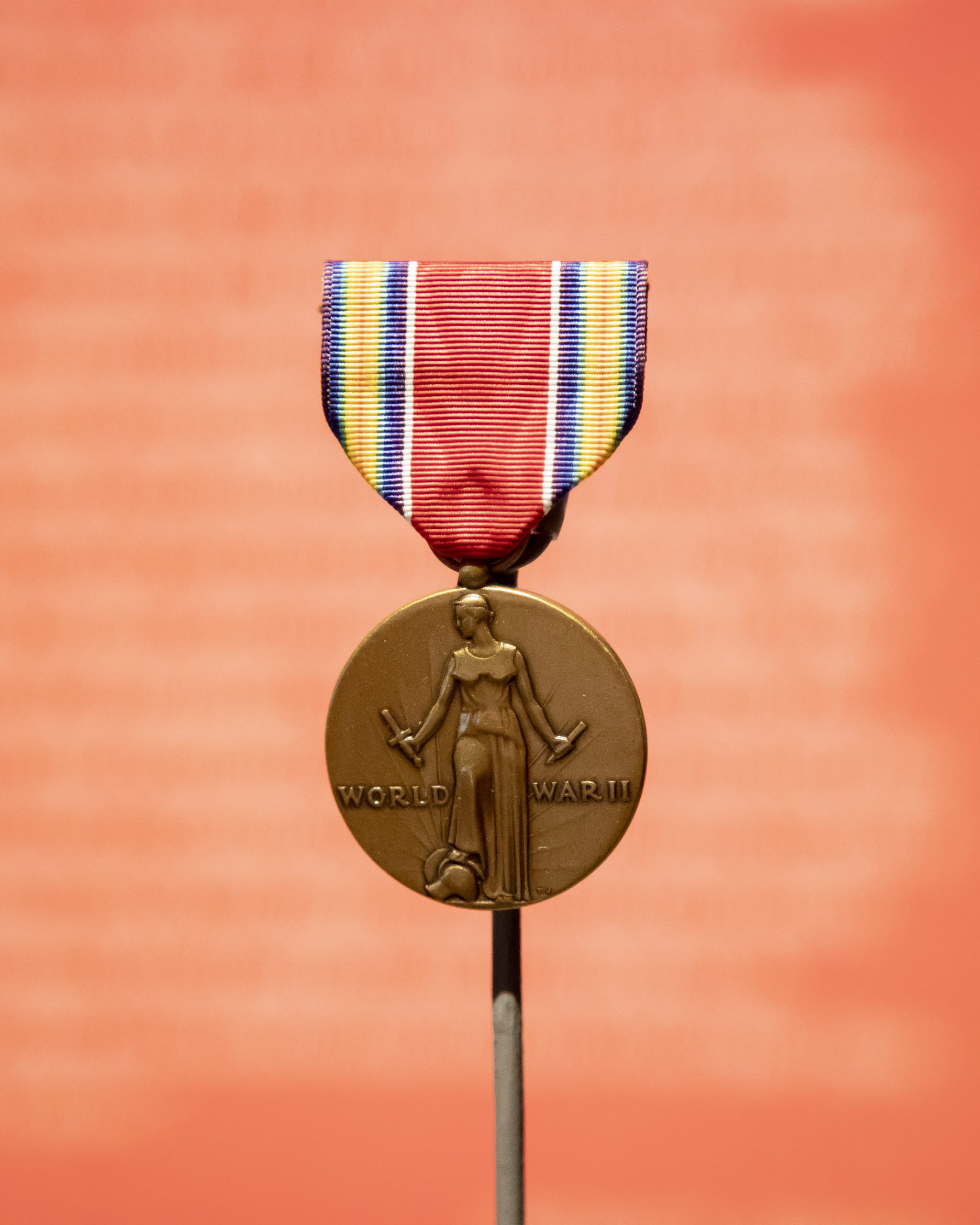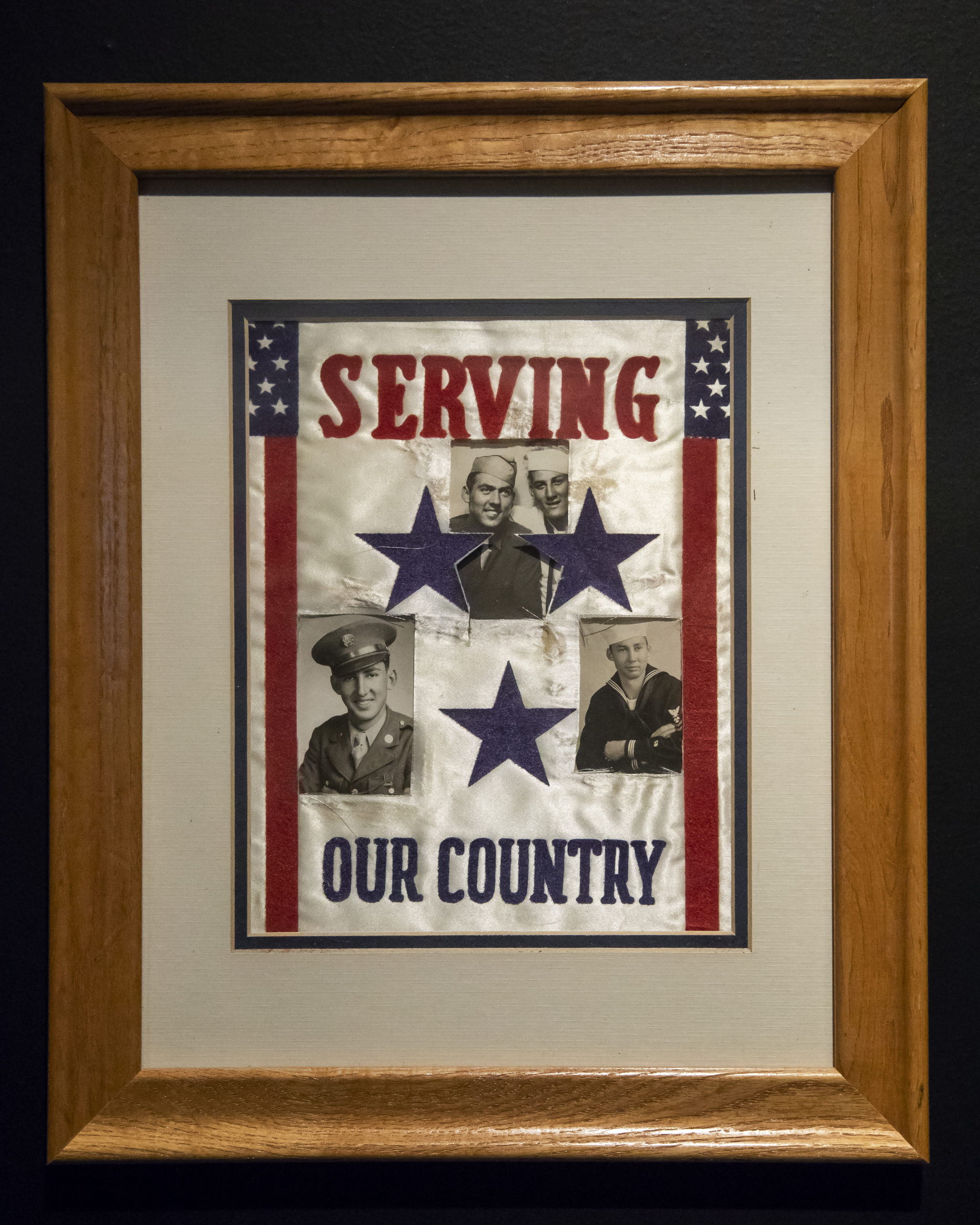A True Hero
Richard V. Johnson
For those who have dedicated themselves to military service and uphold the proud warrior tradition of the Potawatomi, we honor the brave with the title of Wédasé (Strong Hearted). With an extensive and distinguished career in the United States Army, this honor is extended to Richard Vincent Johnson. For valor during the Ryukyu Campaign, Western Pacific Campaign and Battle of Okinawa during World War II, First Lieutenant Johnson received numerous commendations including the Bronze Star Medal [oak leaf cluster], Purple Heart and Commendation Medal. For the Battle of Pork Chop Hill and other acts of bravery during the Korean War, First Lieutenant Johnson was awarded the Bronze Star Medal [two oak leaf clusters], Purple Heart [oak leaf cluster], Combat Infantryman Badge [star], United Nations Service Medal and Korean Presidential Medal. In 2003, First Lieutenant Johnson was inducted into the Oklahoma Military Hall of Fame and National Society of Scabbard and Blade.
I was born on December 15, 1922 in Tecumseh, Oklahoma, the third son and fifth child of David P. and Kate V. Johnson. Just before the Great Depression, we moved to Sanger, California, where I attended elementary and high school. As a kid, I worked at picking grapes and doing other farm chores like bailing hay, feeding livestock and milking cows, a normal farming life at that time. This normal way of life took a drastic turn one Sunday morning in early December 1941, when we were told by a neighbor that the Japanese had just bombed a place called Pearl Harbor, where many of our naval ships were docked. Not sure what the problem was, but soon found out from our president, Franklin Delano Roosevelt, that the United States had declared war on Japan. Having four brothers and myself old enough for military service, it was then decided that at least one would try to get deferred long enough, so that the rest of the family would have a wage earner for support. I won the shorter stick and was left behind for several months, while my two older brothers Jim and Andy, and younger brother Charley, went off to war.
It wasn’t too long after the War started that almost everything imaginable became a ration item.
My father had to apply for certificates covered under the rationing program, so we could purchase certain foods or clothing like shoes, rubber boots, sugar, meats and cheeses. You name it and it was rationed. Gasoline and oil products were only allowed for purchase if you had a sticker on the windshield of the car that read A, B or C. That designated what the gas was to be used for. If you had a flat or blowout you were in trouble until you were issued a certificate to buy a new tire. All old tires and rubber items were collected and given for the war effort .At the time war was declared, I was a senior at Sanger High School and was allowed to graduate soon after coming back from Christmas break, so as to enlist into the military or go to work and support a family. I entered on July 25, 1944 and served for ten and half years in the U.S. Army Infantry and Reserves. It seems like only a few years have passed since that Sunday morning in December 1941, but sixty-three plus years have gone by and I can still remember how everyone seemed to gather around the effort to win a war not of our choosing. What a grand experience, but very difficult to place into words, because today that togetherness seems to have been lost or forgotten. My pride lies in the fact that during the passing years since WWII and fifty-seven years of married life, with five successful grown children and a wonderful wife, it all seems worth it to be able to look back and remember only the happy times and not dwell long on the bad times. It’s the bad times that people seem to believe is necessary to be paraded forth for others to understand what it was like then. What the future holds is anybody’s guess.
Richard V. Johnson

